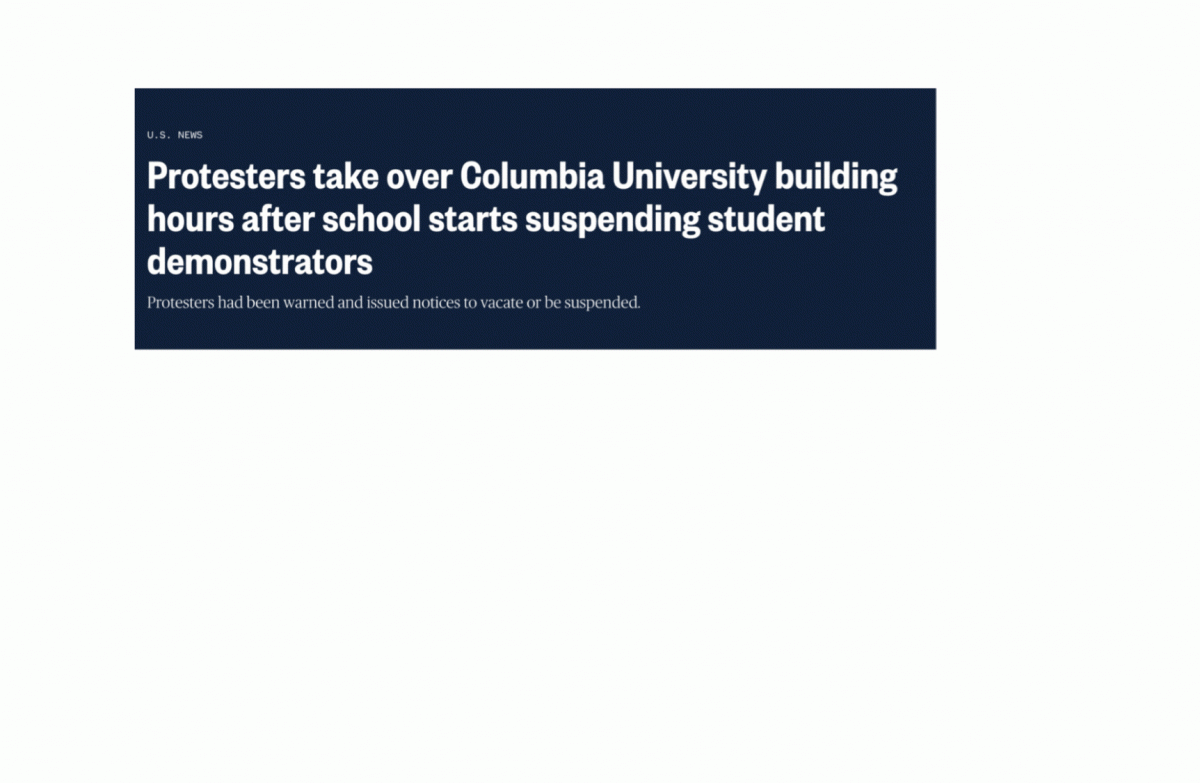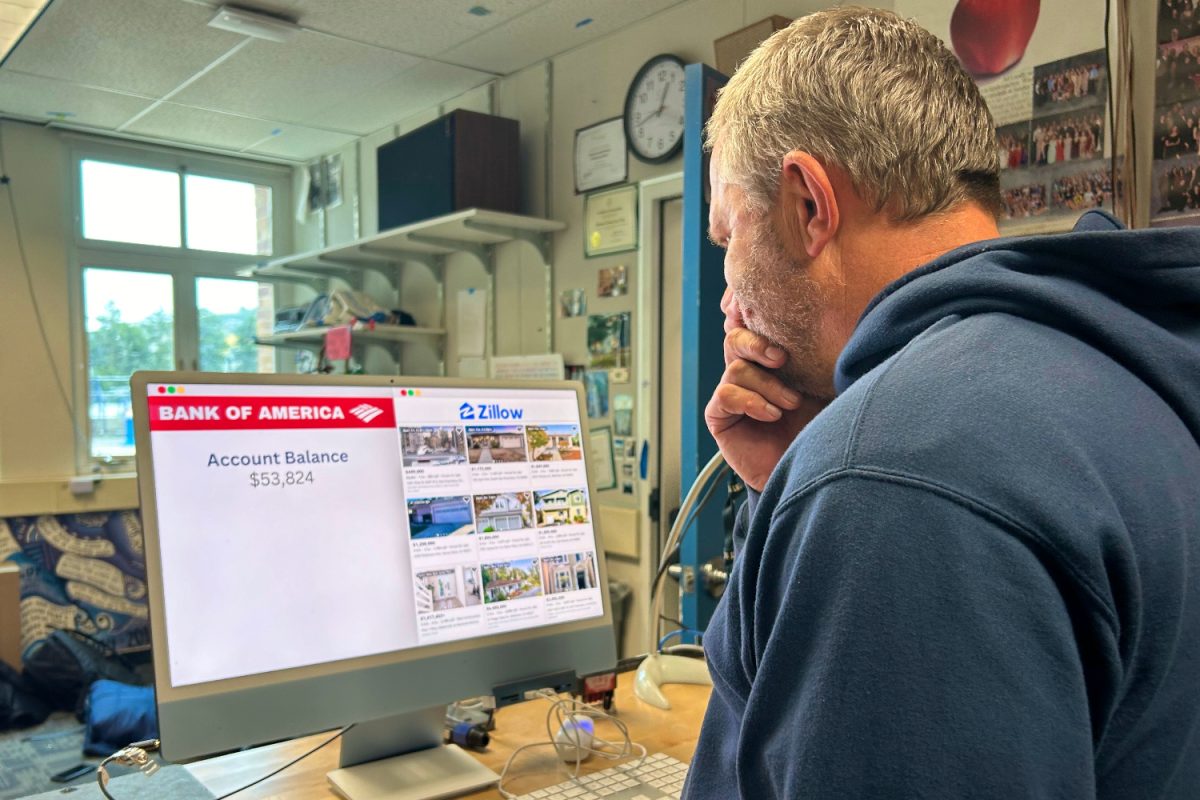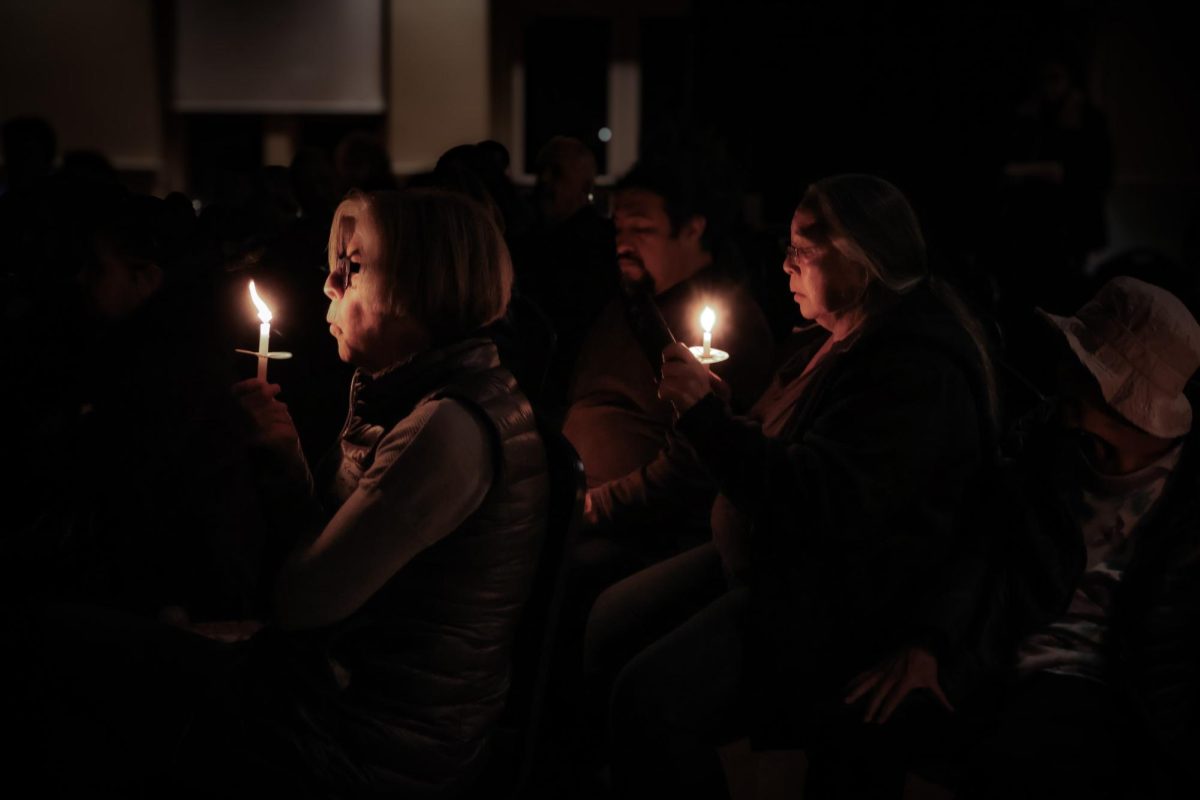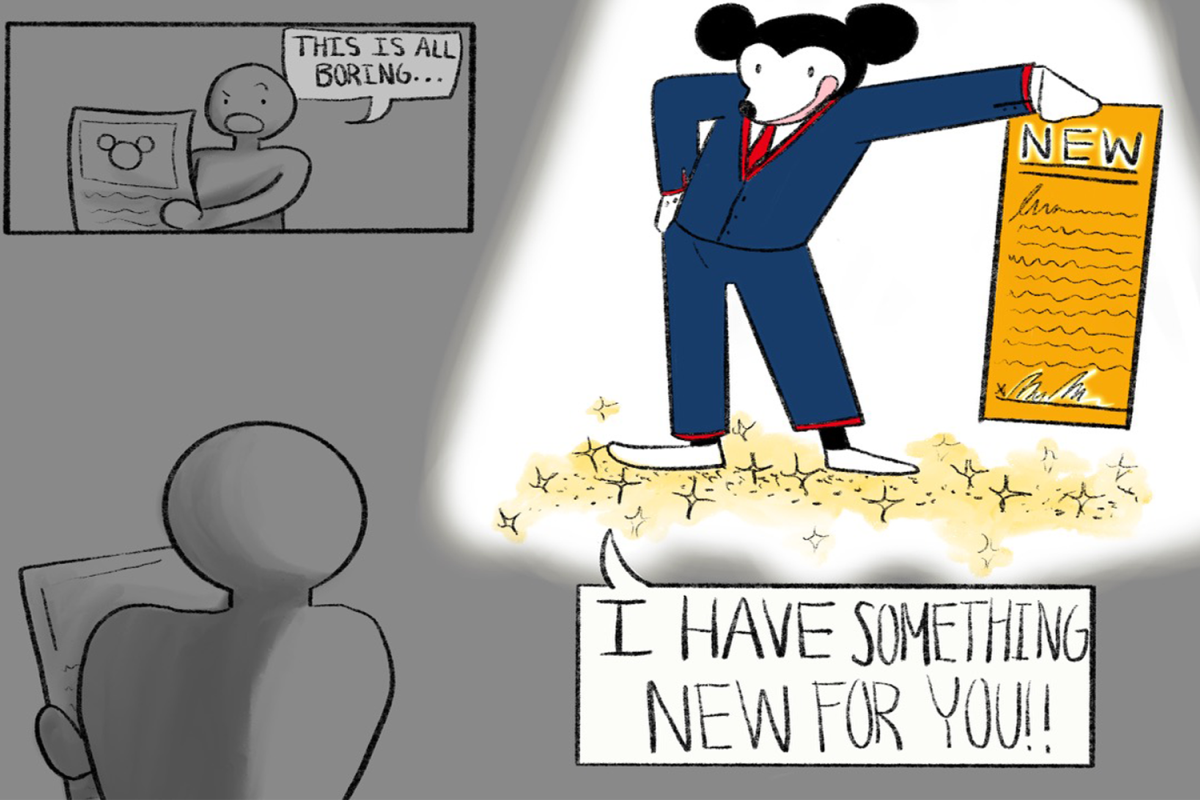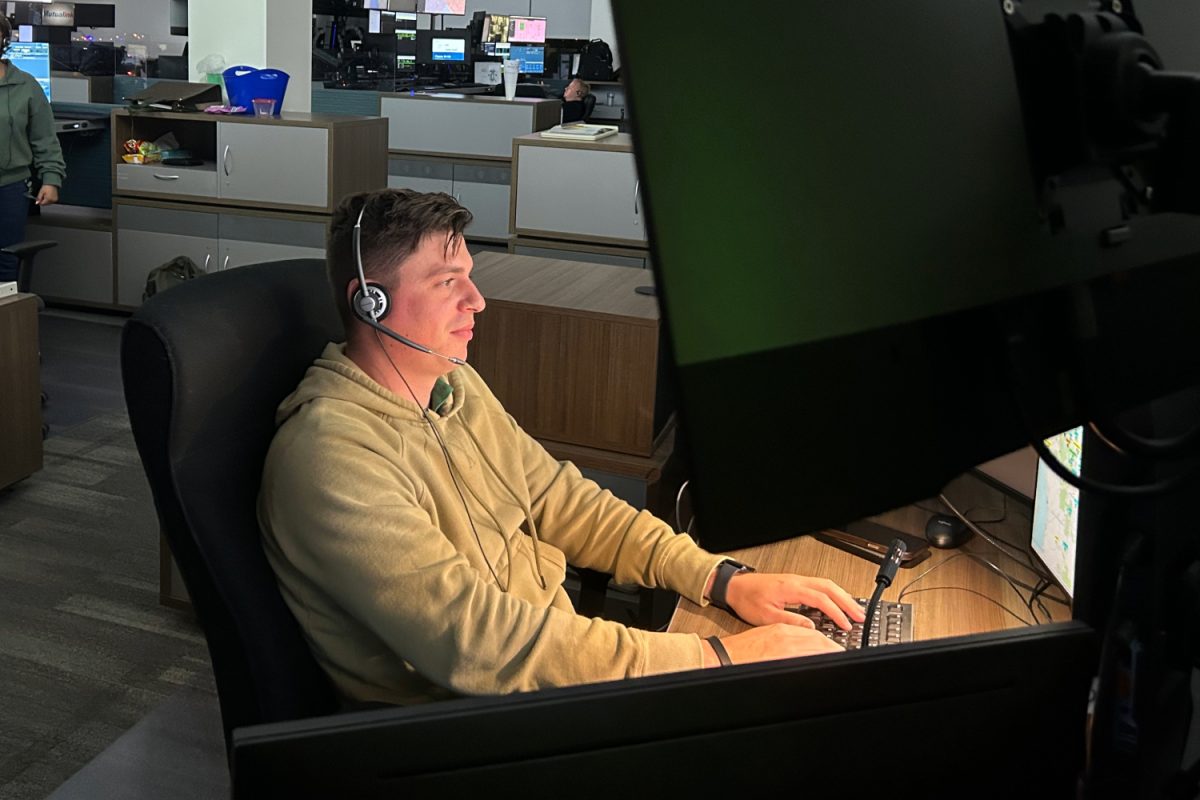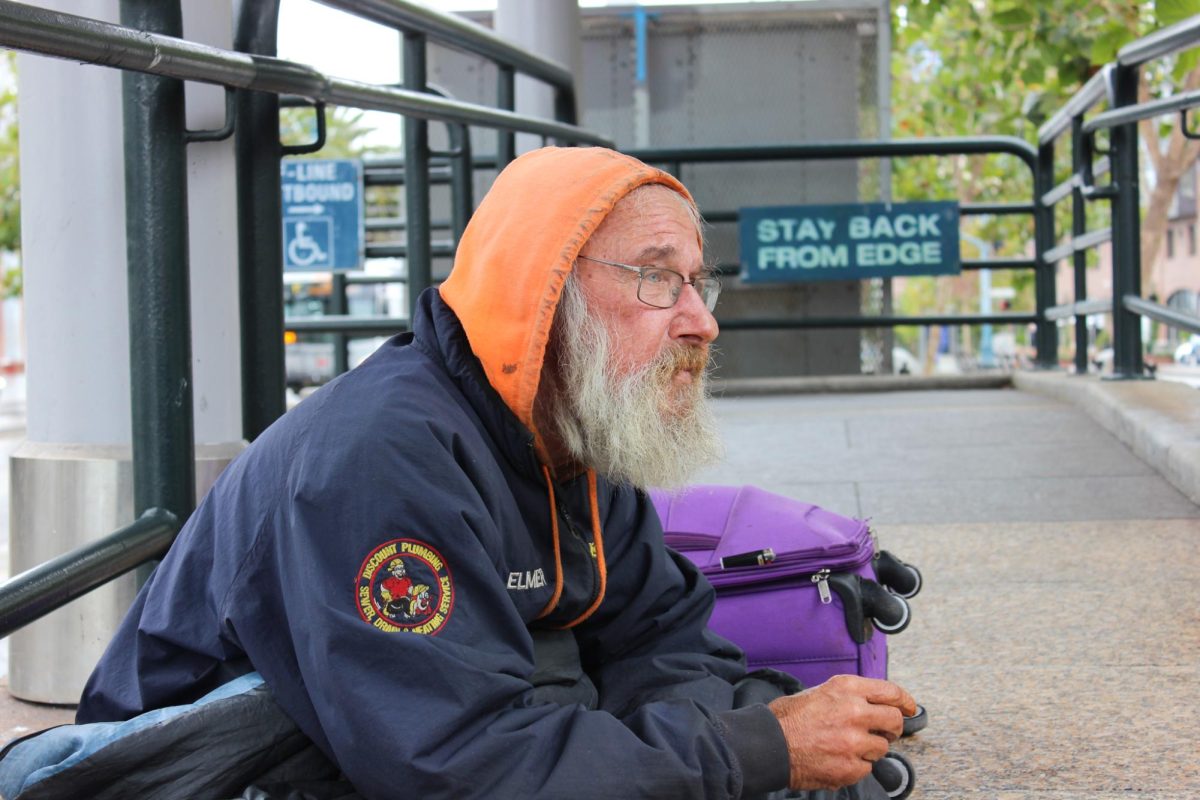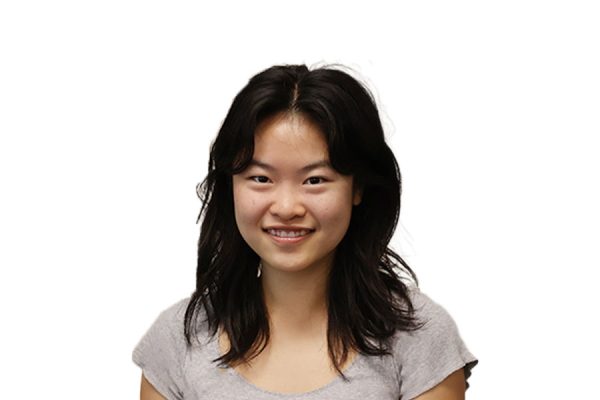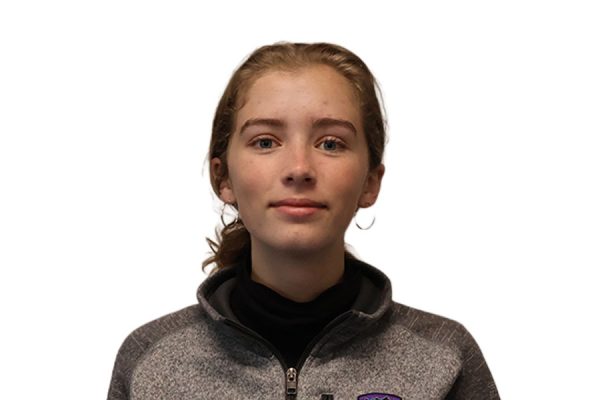A clock ticks towards midnight. Not to signal the next day, but to signal a point of no return for humanity. Our planet moves toward this reality of an inhabitable future that is fueled by climate change and human inaction.
Scientists, politicians, and communities that once believed human-influenced climate change effects didn’t exist are now faced with new studies and physical examples of the changing climate.
A study conducted by the Yale Program on Climate Change Communication found that in 2023, 72% of Americans believed that global warming was happening, and 58% believed that global warming was caused mainly by human activities.
Yet, a new style of climate change “deniers” has gained popularity in recent years: climate “doomists.”
“Climate doomism” is the belief that any fight against mitigating climate change is lost, and humans may become extinct in the near future.
This sense of impending doom either halts people in their tracks or motivates change. While climate change is a dreary topic, hopelessness isn’t the only story. Understanding the current climate landscape, forging a bridge between scientific evidence and effective policy, and exploring the legal frameworks that can enforce environmental protection can all take steps toward a more livable future.
The Climate Landscape
The Center for Countering Digital Hate states that in 2018, 35% of YouTube climate change transcripts were regarding “New Denial,” or the claim that climate solutions won’t work, aren’t reliable, or are bad. Then, in 2023, that figure rose to 70%, while “Old Denial,” or the belief that climate change does not exist or isn’t caused by humans, decreased by 35% from 2018 to 2023.
Climate change does not seem to be the only overwhelming challenge humanity has had to face, according to Dr. Jan Sindt, who is leading a team helping least developed countries (LDCs) and small island developing states (SIDS) to implement the Paris Agreement at a global science and policy institute.
“I think throughout history, doomsayers have always accompanied the bigger challenges of their respective time. You name a crisis, I find a corresponding narrative of doom. Climate is not special in that sense, nor is dealing with their narratives on climate,” Sindt said.
Reasons that there is a particular jump in climate doomism may be because of recent events that confirm that the climate is changing, according to Juan Pablo Escudero, a staff attorney at the Emmett Institute on Climate Change and the Environment at UCLA School of Law.
“There are lots of things you could worry about in our lives, and we worry about the things that we think are most important and where we think we could make a difference,” said Dr. Baruch Fischhoff, the Howard Heinz University Professor of Engineering and Public Policy at the Carnegie Mellon Institute for Strategy & Technology.
A person may believe that the climate crisis is “doomed” because they are overwhelmed by the magnitude, according to Escudero. Another reason may be underestimating the general public.
There are lots of things you could worry about in our lives, and we worry about the things that we think are most important and where we think we could make a difference.
— Dr. Baruch Fischhoff
“I study the psychology of decision making, and there are ‘doomers’ who believe that the public can’t understand; they think that people don’t really understand climate change. And I don’t think the research supports that,” Fischhoff said.
Escudero says this becomes a problem when it starts to stall real change from occurring.
“That’s the most common type of person I meet because few serious people are doubting climate change. Quite often, I find these people saying, ‘You are telling too much of a dark story,’ or, ‘No matter what we do, we cannot stop climate change,’” Escudero said.
Bringing Science to the People
Fischhoff helped with workshops and newsletters for the Climate Advocacy Lab and found that even though the scientific community moves forward with climate change data, the general public is not always in the loop.
“I would say a problem with the academic community is that it’s often quite isolated from the real world. We go to people to collect their data and write our papers, and that’s not the same thing as having a sustained interaction with peers who really understand their world,” Fischhoff said.
Fischhoff says that scientific communication is more geared towards fellow scientists than the audience, the general public. An example of this is climate change data.
“My sense is that around 40 years ago, the scientific community knew what the problem was,” Fischhoff said.
In 1986, NASA researcher James Hansen spoke before the U.S. Senate Committee on the Environment and Public Works hearing to discuss scientific evidence of the climate changing.
“I think the scientific community made a mistake in assuming that science would speak for itself,” Fischhoff said.
Environmental Law and Policy
Escudero says his job as an environmental lawyer is to bridge the gap between the scientific community and policymakers.
“Scientists are the ones understanding the issue and making ideas for how to fight climate change. Science is where the answers come from,” Escudero said.
But to translate those answers into actions, it requires law and policy, Escudero says.
When Escudero was working as a legal counsel for the Ministry of the General Secretariat of the Presidency of Chile, he found bringing up the climate conversation difficult.
I was in charge of passing the lobbyists to the Chilean Congress, and it was so hard to discuss climate change.
— Juan Pablo Escudero
“I was in charge of passing the lobbyists to the Chilean Congress, and it was so hard to discuss climate change,” Escudero said.
According to Escudero, especially with doomists, fighting apathy and no mobilization is much more complicated than convincing climate change deniers.
“This type of doomism that we are talking about is not so virulent; it’s not so violent. It’s not that they’re opposing it; they’re saying, ‘But you are making it too serious, or it’s not as important as you say,’” Escudero said.
Instead of convincing an adamant climate change denier, he now has to fight apathy: people who don’t care. Despite all the negativity surrounding climate change, Escudero has found a general change in trends.
“It’s getting easier and easier because people are starting to see the effects of climate change themselves,” Escudero said.
Fischhoff says it is essential to educate oneself on candidates as a constitution.
“Each of us has our own opinions; all of our opinions are equal; we all get to vote,” Fischhoff said.
According to Escudero, voting alignment is crucial to make a difference.
I’d say 15 years that there’s been a real public mobilization, and with the hit of the recent legislation, that would have been hard to imagine even ten years ago. So I think we got going a little late, but I think there’s a lot of people trying to do things.
— Dr. Baruch Fischhoff
“I’d say 15 years that there’s been a real public mobilization, and with the hit of the recent legislation, would have been hard to imagine even ten years ago. So I think we got going a little late, but there’s a lot of people trying to do things.” Fischhoff said.
Setting goals and working towards them through a global movement is shown to work. According to Escudero, bridging the gap between understanding scientific research and applying it to policies is also crucial.
“I see all these people working on it. There’s always really decent, intelligent, dedicated people working on it, and I’m really optimistic about people’s ability to understand complicated research,” Fischhoff said.




